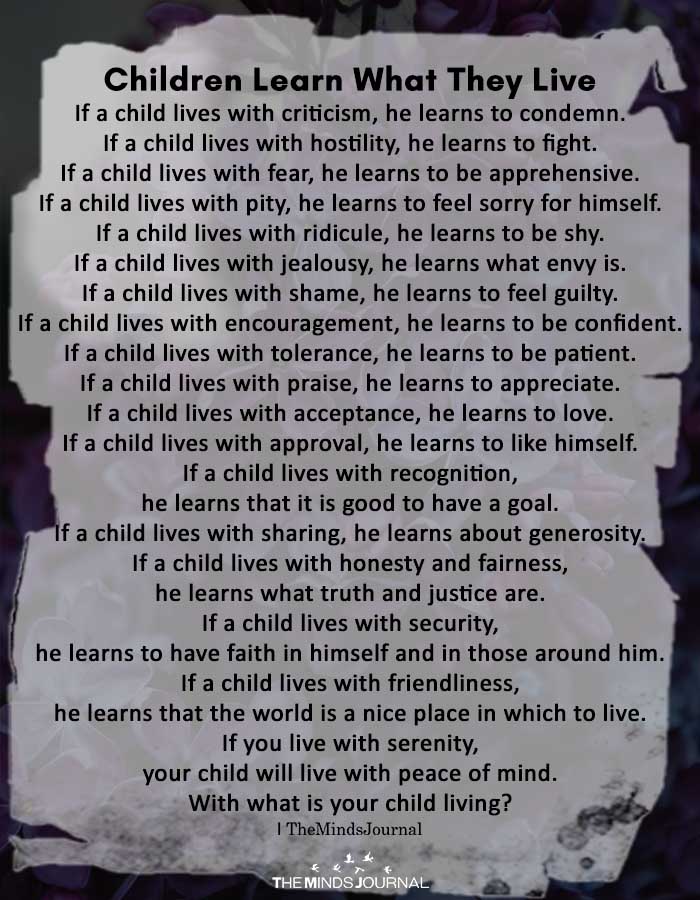Are you concerned about your child’s behavior and wondering if they may be exhibiting narcissistic tendencies? Let’s explore the role of parenting in the development of narcissism and how to prevent raising a narcissist.
Imagine this.
You take your child “John” to the playground and he starts playing with other children. However, your child doesn’t seem to be too excited about being a team player. He wants to be the leader of the group and make all the decisions about what games they play and how they play them.
When another child suggests a different game, John becomes defensive and insists that his game is the best. He belittles the other child’s idea or becomes angry and refuses to play if he doesn’t get his way.
John insists on being the center of attention and becomes upset if the other children don’t pay attention to him or praise his ideas. He tries to manipulate others by threatening to leave the game, just to get the other children to comply with his wishes.
In this scenario, “John” is exhibiting a sense of entitlement, an inflated sense of self-importance, and a lack of empathy and respect for the other children’s ideas and feelings. He prioritizes his own needs over the needs of the group, leading to conflicts and difficulties in social situations.
Is this the type of child you want to raise as a sensible and mature parent? Of course not. This is why it is crucial that you learn to identify the signs of a narcissistic child early on and how to avoid raising a narcissist.
Related: Parenting Pitfalls: How Parents Create Narcissistic Children
Signs of narcissism in children
Here are some common signs that a child may be developing narcissistic tendencies –
1. Excessive need for attention and admiration
Narcissistic children often demand to be the center of attention and become upset if others don’t notice them.
2. Exaggerated sense of superiority
They may act arrogant, look down on others, and think they are better than peers.
3. Difficulty empathizing with others
They have trouble understanding or caring about other people’s feelings and needs.
4. Expecting special treatment
Narcissistic children often believe they deserve preferential treatment and act entitled.
5. Exploiting or manipulating others
They will use others to get what they want with little regard for the impact on others.
6. Difficulty handling criticism
They become angrily defensive or aggressive when corrected due to a fragile ego.
7. Blaming others for mistakes
They refuse to admit fault, instead accusing others of being wrong or out to get them.
8. Impulsivity and risk-seeking
They have low frustration tolerance and seek thrills without considering consequences.
9. Envy of others’ successes
They resent it when others receive praise, attention or rewards.
10. Exaggerating talents and achievements
They tend to boast, brag or lie about their abilities and accomplishments.
Those are some of the main signs to watch out for. The key is to identify any unhealthy behaviors early and set appropriate limits while emphasizing empathy, interpersonal skills and emotional regulation.
It’s important to note that it’s not uncommon for children to exhibit some narcissistic traits during their development, particularly during early childhood and adolescence. However, if these traits persist into adulthood and interfere with the child’s ability to form healthy relationships and function in society, it may be a sign of narcissistic personality disorder.
Now that we know the signs of a narcissistic child, let’s explore the role of parents and understand how to prevent raising a narcissist.
Related: 30 Ways In Which Narcissistic Parenting Affects A Child
Do parents play a role in raising a narcissistic child?
The answer is a resounding YES! The parenting style and behaviors exhibited by parents can influence the development of narcissistic traits in their children.
Overindulgence, excessive praise without merit, lack of boundaries, and unrealistic expectations can contribute to a sense of entitlement and self-centeredness. Neglect or inconsistent parenting can also lead to feelings of insecurity and a desperate need for validation, which can manifest as narcissistic behaviors.
Parents can inadvertently contribute to the development of narcissistic tendencies in their children by –
- Overvaluing their child’s abilities
- Overpraising them
- Not setting appropriate boundaries
Children who are overindulged and treated as though they are entitled to special treatment may develop a sense of entitlement and an inflated sense of self-importance.
Additionally, children who are not taught empathy and respect for others may struggle to develop healthy relationships and may be more likely to exhibit narcissistic tendencies.
If parents consistently prioritize their own needs over their child’s needs and do not model healthy relationship skills, their child may struggle to develop healthy relationship skills as well.
The truth is, parenting is a challenging and complex task, and parents may not always be aware of how their actions are impacting their child’s development. However, parents need to be aware of their own parenting practices and strive to provide a balanced, supportive, and empathetic environment that nurtures healthy self-esteem and emotional well-being in their children.
What does research say?
Research shows that kids raised by “authoritative and permissive parents (high responsiveness)” tend to have more adaptive narcissistic tendencies like grandiosity and superiority.
Moreover, parental indulgence or parental overvaluation can also lead to the development of narcissism in late childhood. “Parental indulgence predicted increases in narcissism from age 10 to 12,” explain researchers.
A 2020 study showed that being overprotected, overvalued and exhibiting leniency in parental discipline can lead to higher traits of pathological narcissism in children.
The study explains that overprotection or excessive pampering is associated with “grandiose and vulnerable narcissistic traits, characterized by the young person expressing unrealistic self-views, entitlement beliefs and impaired autonomy.”
Another 2021 study showed that perceived parenting plays a significant role in the development of narcissism in children. “Both mothers and fathers contributed significantly to the development of inflated self-concept” in children, explain the researchers.
However, it’s important to note that not all children who exhibit narcissistic tendencies have parents who contributed to their development. Narcissism is a complex mental health condition that can have many causes, including genetics, trauma, and environmental factors outside of the home environment.
Related: How A Child Becomes Narcissistic: What Type of Parenting Leads Children To Grow Up With NPD?

How to prevent raising a narcissist
Wondering how to avoid raising a narcissist? Narcissism is a surprisingly common issue in today’s world and as parents we need to be aware of how we can prevent raising narcissistic children.
Here are some key strategies on how to prevent raising a narcissist –
1. Build self-esteem the healthy way
Building a healthy self-esteem in children involves striking a balance between acknowledging their accomplishments and nurturing their sense of intrinsic worth. Focus on –
- Teaching your child coping skills to deal with hardship and failure. This builds resilience that counters narcissism.
- Giving unconditional love and acceptance. Your child needs to feel loved for who they are, not what they do.
- Modeling humility and empathy. Show your child how to be compassionate towards others.
- Letting your child find their own strengths. Don’t force your dreams on them. Help them explore to find what motivates them intrinsically.
2. Set realistic expectations
Unreasonable demands breed narcissism in kids. Be practical and reasonable about what you expect from your children. Work on –
- Accepting that your child has strengths and weaknesses like everyone else.
- Adjusting your expectations to your child’s current capabilities, not some ideal image of who you want them to be.
- Praising the effort, not just the outcome. This teaches that trying your best is what matters.
- Not living through your child. Focus on nurturing their own unique personality, talents and interests.
3. Teach boundaries
Healthy relationships are built on mutual respect, empathy, and clear boundaries. By instilling these values, we can prevent narcissistic tendencies in our children. This is a crucial step when learning how to prevent raising a narcissist. Consider the following steps:
- Teach respect for others. Emphasize the importance of treating others with kindness, respect, and consideration.
- Encourage cooperation, teamwork and collaboration to teach your child the value of working together towards common goals.
- Establish boundaries. Teach your child to respect personal boundaries, both their own and those of others, fostering a sense of empathy and healthy self-identity.
- Set limits on screen time, establish rules for behavior, and enforce consequences when those rules are broken.
Related: Little Leaders, Not Narcissists: How To Not Raise A Narcissistic Child
4. Foster empathy
The lack of empathy is a hallmark of narcissism. Encouraging empathy involves teaching children to recognize and understand the feelings of others. Cultivate empathy in your child by –
- Modeling empathy yourself – apologize sincerely when you’re wrong, understand others’ perspectives.
- Teaching perspective taking – how someone else might feel in a situation.
- Giving your child opportunities to help others who are less fortunate by volunteering, fundraising etc. This teaches compassion.
- Having open discussions so your child understands different emotions and experiences. Ask how they think someone might feel in a situation.
5. Curb attention seeking behaviors
Narcissists often tend to lie and manipulate others in order to gain attention and appreciation. Deal with attention seeking in a kind but firm manner –
- Don’t make exaggerated responses – remain calm and consistent.
- Give your child attention for positive behaviors, not just negative behaviors or acting out.
- Highlight appropriate ways to ask for attention – using words, not disruptive actions.
- Set limits and stick to them. Your child will test boundaries so remain firm and consistent.
- Seek professional help if issues persist beyond normal stages. Early intervention is best.
6. Promote emotional regulation and resilience
Narcissism often stems from difficulties in managing emotions and setbacks. Consider these strategies:
- Teach problem-solving skills to help your child develop problem-solving skills by discussing strategies and involving them in decision-making processes.
- Emphasize the importance of resilience and perseverance when facing obstacles, reinforcing that setbacks are opportunities for growth.
- Foster emotional intelligence to help your child identify and articulate their emotions, and provide guidance on appropriate ways to express and manage them.
By focusing on nurturing their true personality over time, you can learn how to avoid raising a narcissist and give your child the best chance of developing into a happy, humble and caring human being. With love, patience and the right strategies, you can learn how to prevent raising a narcissist from the start.
9 More ways to avoid raising a narcissist
Want some more tips on how to prevent raising a narcissist? Here are some more essential things to keep in mind –
7. Explain others’ perspectives
Point out how your child’s behavior can hurt others and can make his friends feel annoyed. Help the child practice thinking about how his actions impact and make others feel.
8. Avoid overpraising
While it’s essential to praise your child when they do something well, it’s equally important to avoid overpraising. Overpraising can lead to a sense of entitlement and an inflated sense of self-importance.
Narcissists often crave attention and admiration, and overpraising can reinforce this behavior.
9. Praise positive behaviors
While you need to avoid overpassing, you must acknowledge positive behaviors and efforts. Instead of excessively praising your child, focus on acknowledging their effort and hard work.
When your child shares, includes others, asks before using things, or waits for their turn patiently, notice and reinforce those behaviors with positive attention. This is an excellent strategy when exploring how to prevent raising a narcissist.
10. Teach gratitude
Gratitude is the practice of appreciating and being thankful for what we have. Children who learn to practice gratitude are less likely to develop narcissistic tendencies.
As a parent, express appreciation for the people and things in your life, and encourage your child to do the same.
Related: Is Narcissism Inherited? Can Narcissism Be Passed On From Parents To Children?
11. Encourage healthy relationships
Narcissists often struggle to maintain healthy relationships. You can encourage healthy relationship skills with peers, family members, and other adults by modeling them yourself. You can also teach your child how to communicate effectively, listen actively, and resolve conflicts peacefully.
12. Avoid overindulging
As a parent, it’s essential to avoid overindulging your child as it can lead to a sense of entitlement and an inflated sense of self-importance. Children who are overindulged may struggle with delayed gratification and have difficulty coping with disappointment.
Avoid overindulging by setting limits on material possessions, establishing rules around treats and rewards, and encouraging your child to earn privileges through hard work and effort.
13. Encourage self-reflection
Self-reflection is the practice of examining one’s thoughts, feelings, and behaviors. Children who learn to engage in self-reflection are less likely to develop narcissistic tendencies.
Encourage self-reflection by modeling it yourself and encourage your child to do the same. Ask them open-ended questions that encourage reflection and introspection.
14. Establish consistent consequences
Whenever your child acts selfishly or hurts others’ feelings, set a consequence like losing a privilege. Stick to the consequences to reinforce the consequences of their actions.

Raise a positive and balanced child
Narcissism is a complex mental health condition, and its exact causes are not fully understood. However, as a parent, you can take proactive steps by learning how to prevent raising a narcissist.
By practicing empathy, avoiding overpraising, setting boundaries, teaching gratitude, encouraging healthy relationships, avoiding overindulging, and encouraging self-reflection, you can help your child develop a healthy sense of self and a compassionate, empathetic worldview. These strategies can also help your child develop healthy relationship skills, resilience, and a sense of personal responsibility.
Remember, parenting is an ongoing process, and it’s never too late to make positive changes in the way you interact with your child. By prioritizing your child’s emotional and social development and modeling healthy relationship skills, you can help prevent the development of narcissistic tendencies and promote a healthy, well-adjusted child.
Related: What Is Golden Child Syndrome? 10 Signs Of “The Favorite Child










Leave a Reply